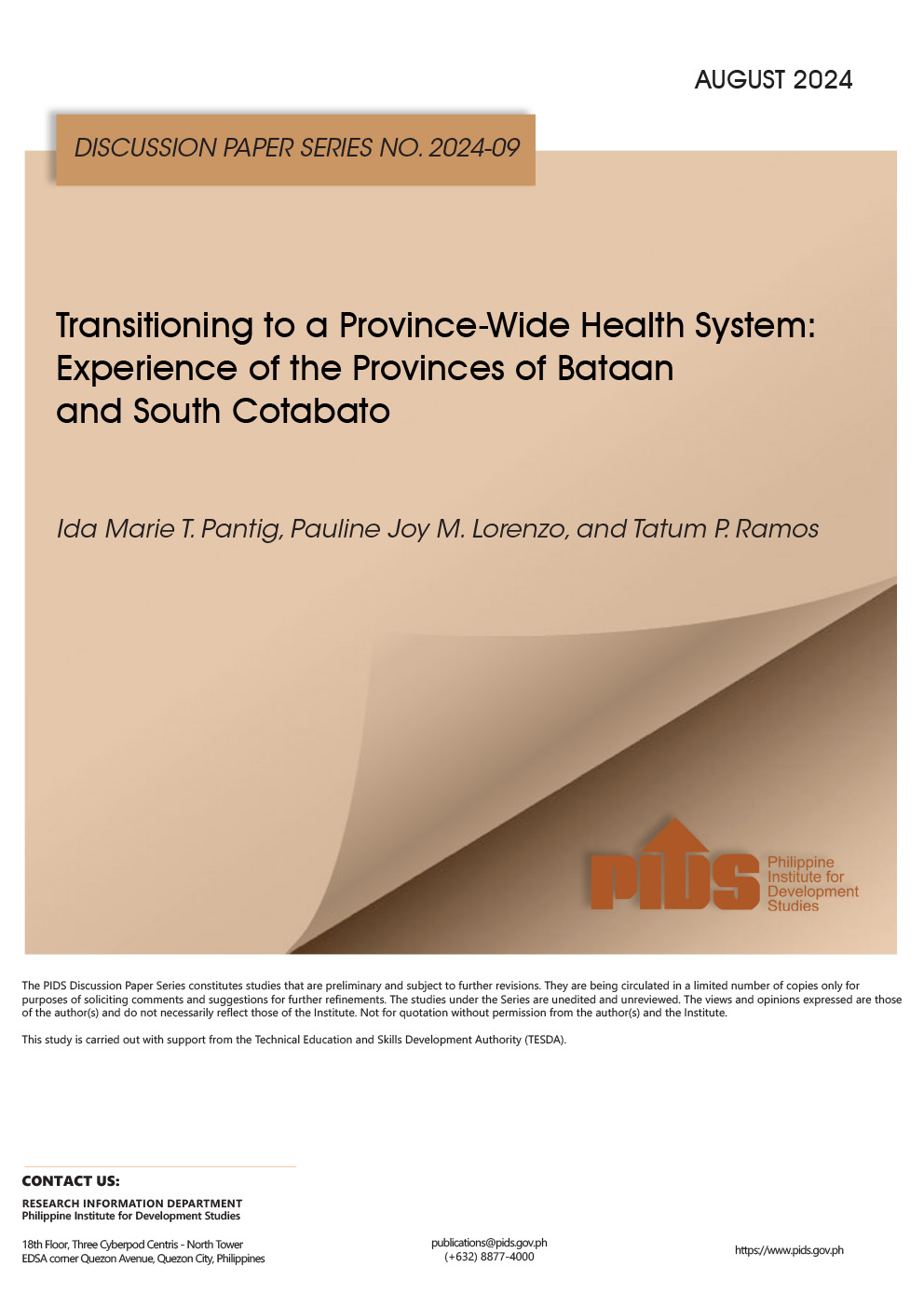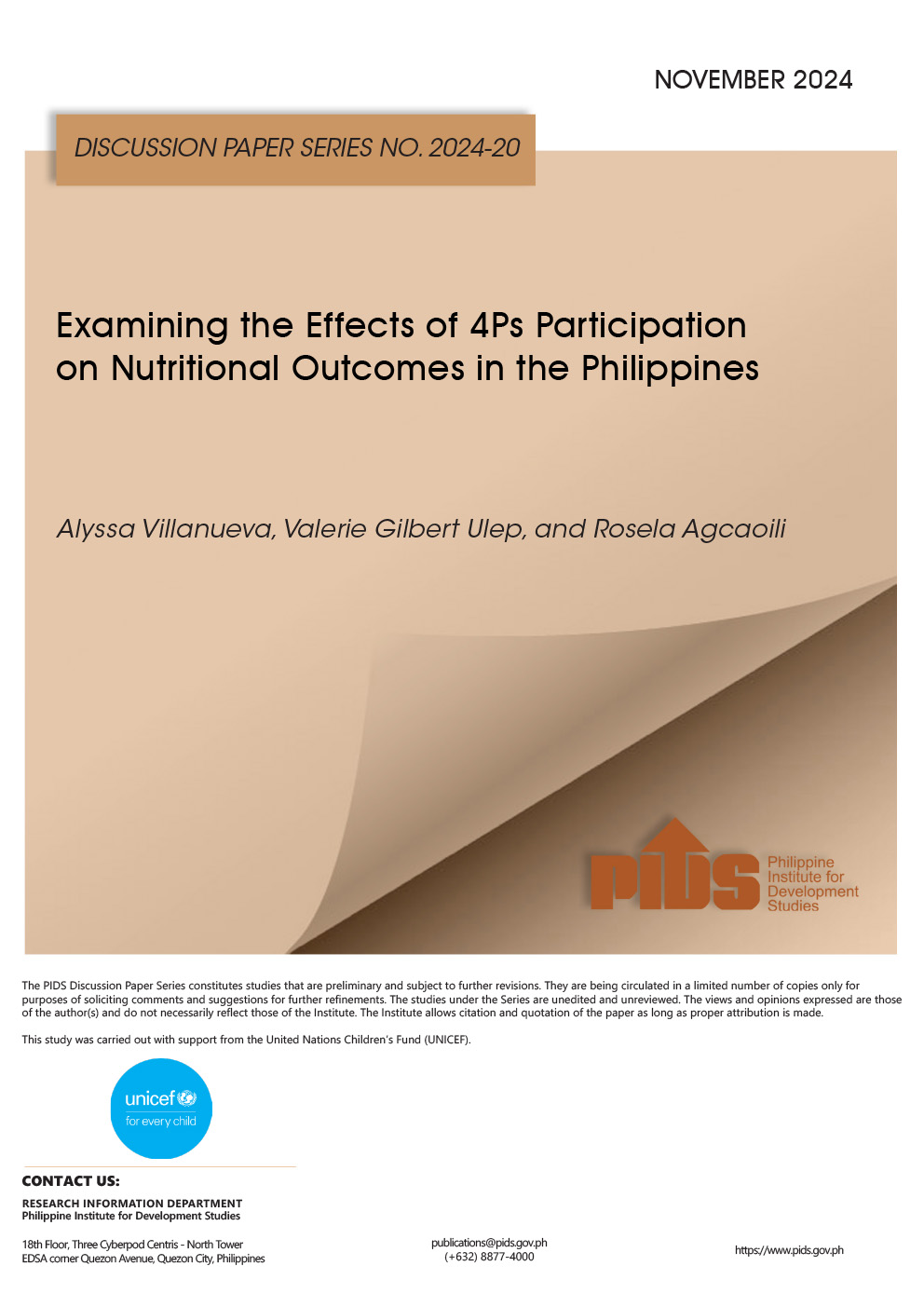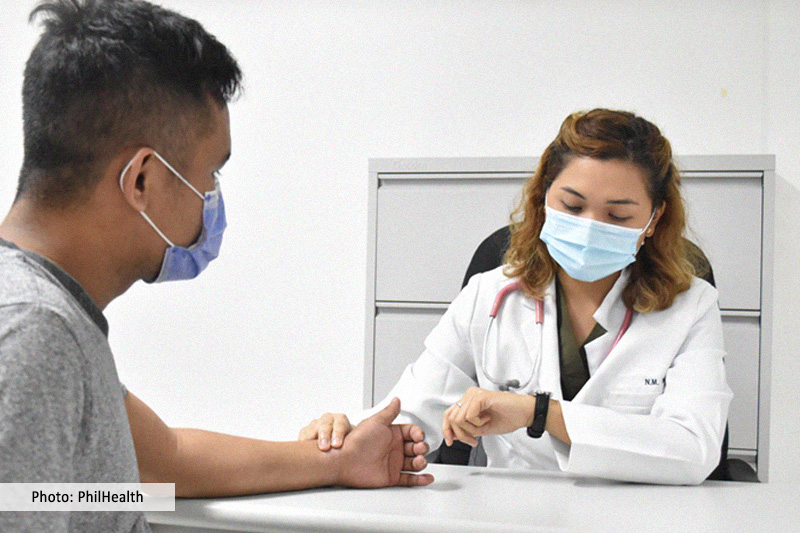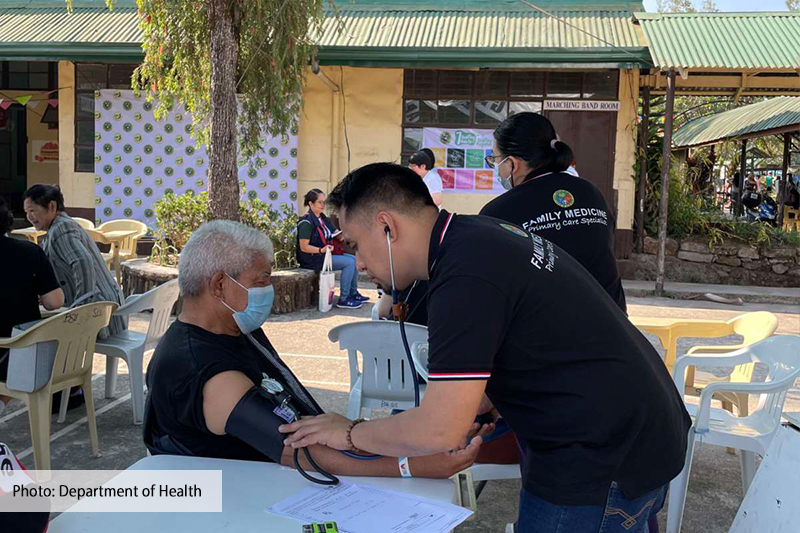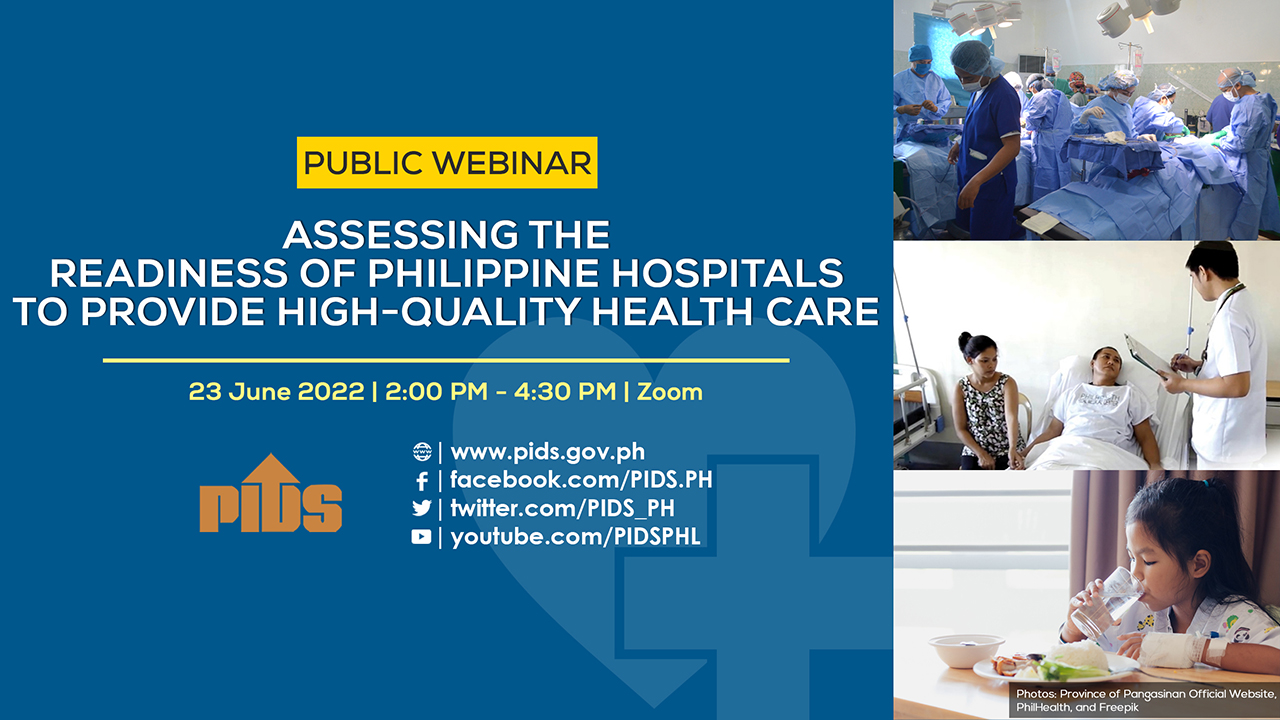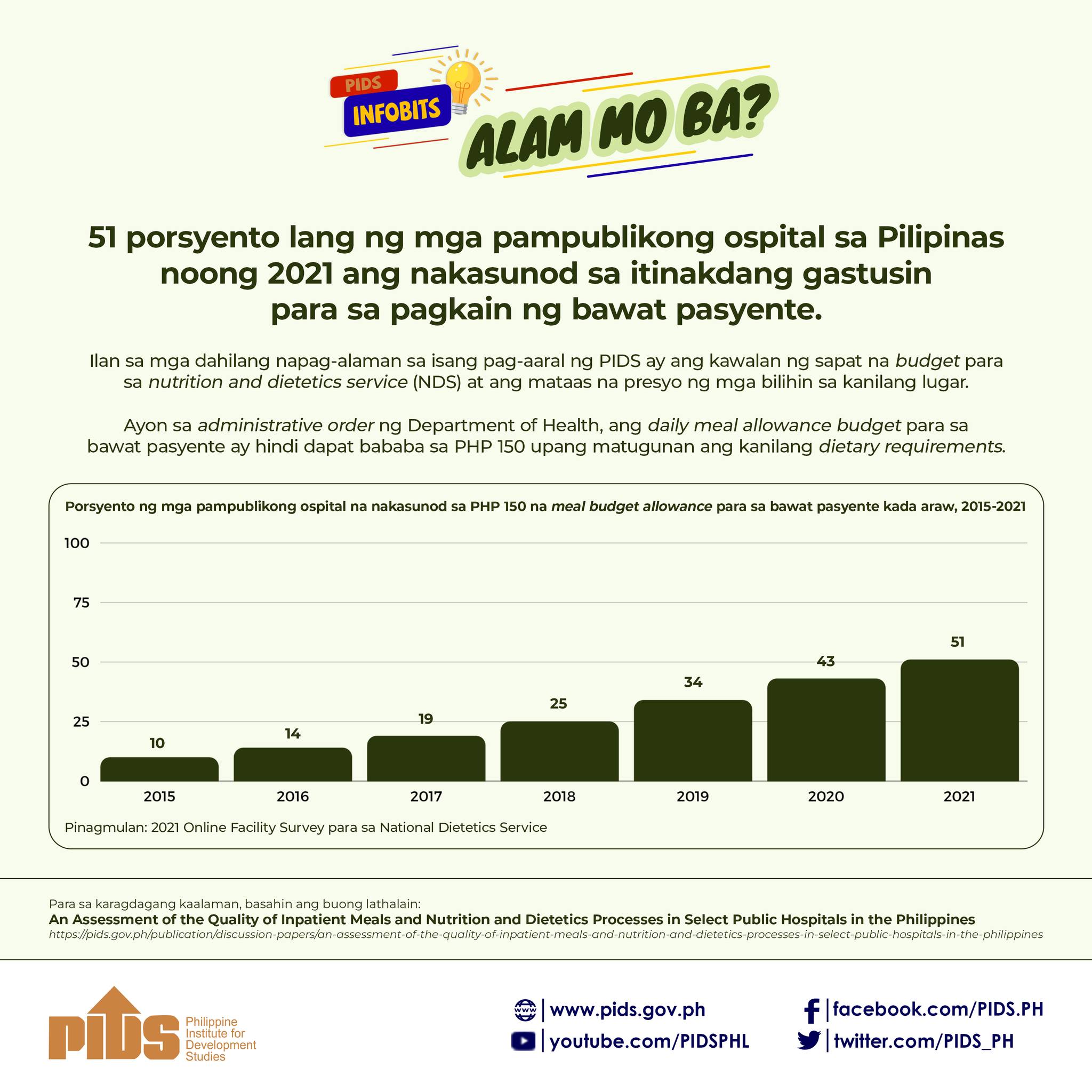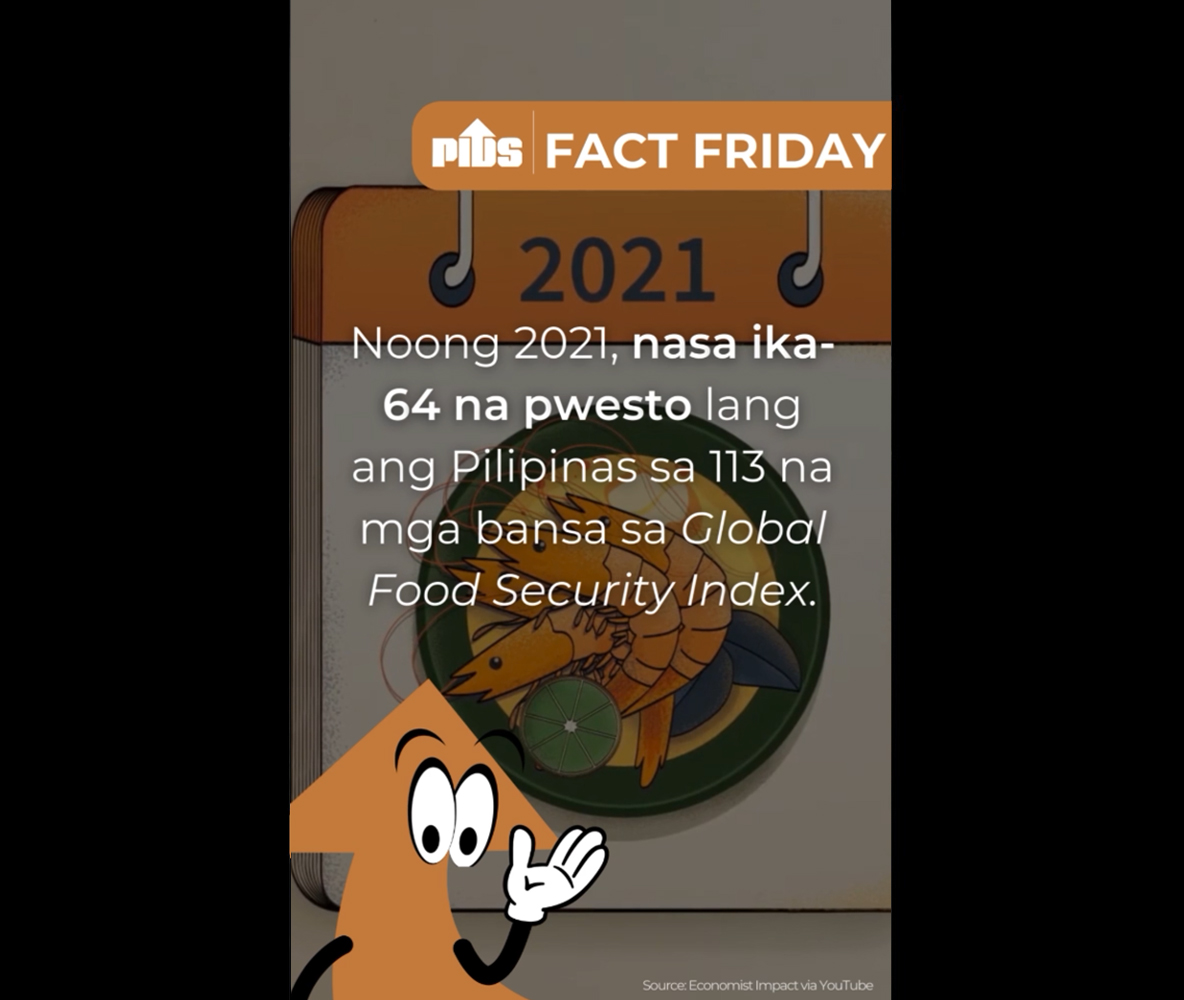Cebu City - The barangay is the smallest political unit that plays a big role in the implementation of programs. With the existing devolution, the barangays are expected to perform more and achieve the goals of the Philippine Plan of Action for Nutrition (PPAN) 2017-2022, one of the key components of the Philippine Development Plan.
However, a recent study by the Philippine Institute for Development Studies (PIDS) as commissioned by UNICEF Philippines found that the barangays have insufficient knowledge of the PPAN 2017-2022, which serves as the framework for tackling nutrition issues at the barangay level. Low or inadequate nutrition budgets at the barangay level is likewise a common source of worry among barangays. For children, nutrition is primarily thought of as food or feeding-related activities. Apart from these concerns, a recurring theme among barangay nutrition scholars (BNSs) at previous conferences and training sessions of Punong Barangays' and members of the barangay nutrition committee's lack of understanding of the importance of investing in nutrition and their roles in the committee.
Not all local government units (LGUs) have functional local nutrition committees. This may be caused by myriad of factors. Some of nutrition is not a priority, budgetary limitations, insufficient human resources, political indifferences, or simply, the local chief executive (LCE) does not know that the program exists.
The status of functionality of the Local Nutrition Committees (LNCs) in Central Visayas based on the data gathered by the Department of the Interior and Local Government 7 in June 2021 shows that only 25.7 percent are fully functional, 35.3 percent are substantially functional, 22.8 percent are partially functional, and 7.4 percent are non-functional.
To address these concerns, the National Nutrition Council Region 7 in partnership with DILG 7 has organized a Regional Dialogue with Punong Barangays: Enabling Nutrition Devolution to encourage Punong Barangays in Central Visayas to be supportive of the implementation of the PPAN in their barangays, include key nutrition programs, projects, and activities in their Devolution Transition Plan, and invest more in nutrition. The activity was conducted on 16 November 2021 via Zoom.
It was attended by almost 1,300 participants consisting of Punong Barangays (Barangay Chairpersons), Barangay Nutrition Scholars (BNSs), Sangguniang Kabataan Chairpersons and other members of the BNC from different LGUs in the region. Topics discussed include “Usapang PPAN sa Barangay: Programang Pangnutrisyon gawing mahusay presented by NPC Dr. Parolita A. Mission of NNC 7 and “Bigger Budgets, More Investments for Nutrition: Devolution of Nutrition Services in Light of the Mandanas-Garcia SC Ruling,” which was discussed by a OIC Chief Buudget Management Specialist Ms. Carlo C. Maraat of the Department of Budget and Management 7.
Partners from Liga ng Mga Barangay Regional Association, Sangguniang Kabataan Regional Association, regional associations of BNSs (FeBaNuSA 7, Inc.), district, city and municipal nutrition program coordinators (NPCAR 7, Inc.), and Nutrition Action Officers (CeVANAO, Inc.) also expressed their support to be “One for Nutrition” and “be one of the spoons” during Regional Dialogue with Punong Barangays.
Nutrition certainly needs a multi-sectoral approach for it to be successful and sustainable. It takes a lot of hard work; patience and it should be invested in by LGUs. The secretariat intends to change how the LGUs view the program and is hoping that in the years to come, nutrition will become a priority so that no child will be left behind.
A call to Punong Barangays to be one for nutrition

